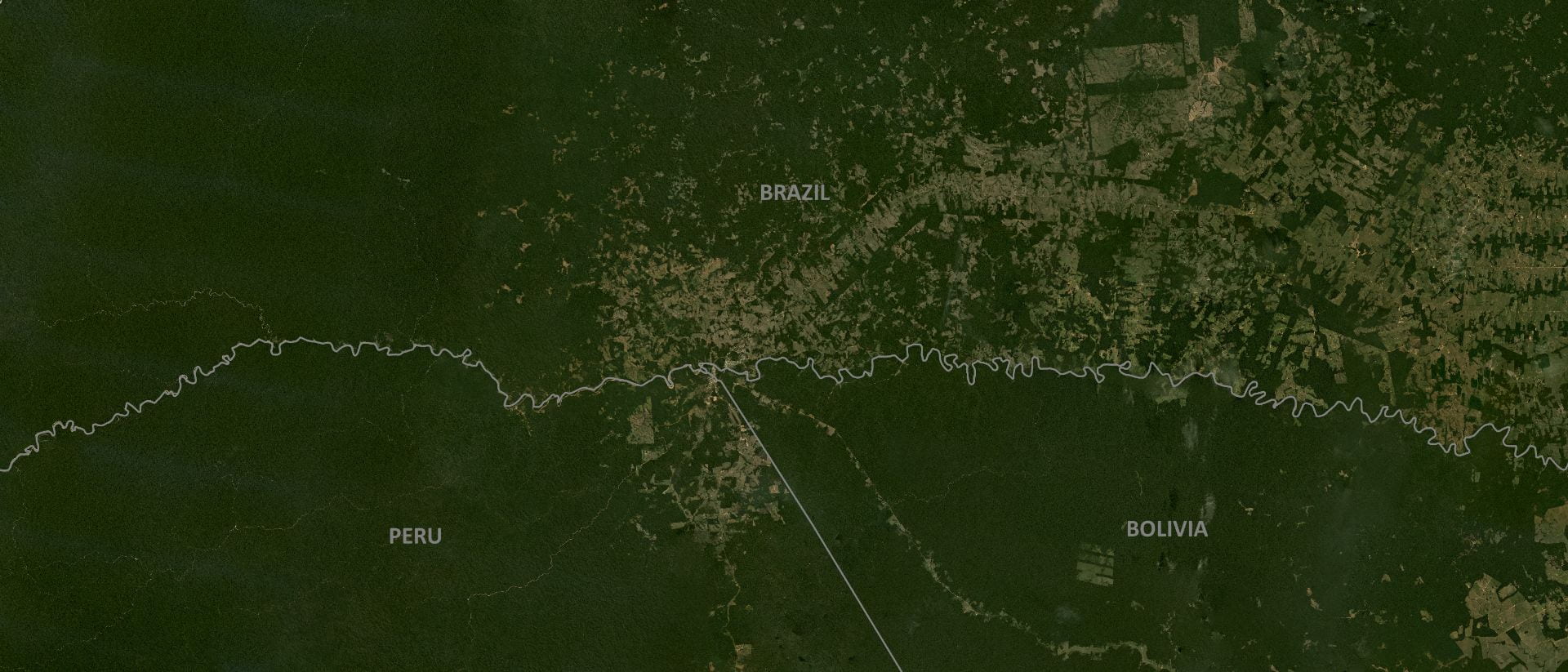Project Context
The Amazon, the world’s largest rainforest, spans 5.5 million square kilometres across nine countries, storing 86 billion tons of carbon and housing 30% of global species. It is the planet’s most vital terrestrial carbon sink, but faces unprecedented threats from deforestation. In Brazil alone, over 3,980 square kilometres were cleared in just the first half of 2022.



Illegal incursions— specifically illegal land grabbing, logging, and mining—play a major role in the Amazon’s destruction, fragmenting habitats and accelerating deforestation. Even though these activities take place on the small scale, they are interconnected across large geographic and social spaces, meaning their cumulative effects have devastating consequences.
The images below highlight the loss of tropical forests in the MAP region in South America (Madre de Dios, Acre, and Pando) from 2016 to 2024. Over these eight years, the landscape has changed, with human-modified patches expanding and replacing natural vegetation.


Based on data from the Amazon rainforests of Peru, Bolivia, and Brazil (a shared border known as the MAP region), this pioneering project explores how small-scale clandestine activities contribute to massive environmental degradation. But INFRACURSIONS shifts the lens to the perspectives and motivations of those involved in informal extractive economies, a perspective that is often overlooked in traditional studies on environmental degradation. Our team aims to reframe how we understand these illicit operations, shifting the narratives away from villains and destroyers to a focus on the hidden infrastructures that allow them to thrive beyond state oversight.

